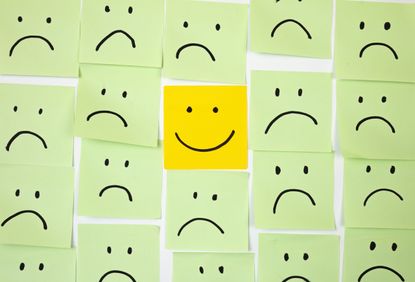More than 2 million people already enrolled onto this Yale course on how you increase your own happiness during lockdown


This story is part of our Good News series – bringing you positive headlines every day to spread positivity during difficult times.
Being happy is more in your control than what you might think – or at least that’s what this Yale course aims to teach you.
Looking after your wellbeing during a pandemic is no easy feat – news can make anxiety levels go into overdrive, vivid dreams may be disturbing your sleep, and to top it all off we miss our friends and family.
So it shouldn’t come as a big surprise that over two million people have already signed up for Yale’s online course on The Science of Wellbeing.
It’s not the first time the course has been available online – it was even made into a podcast last year – but the host, Dr Laurie Santos, is hosting a fresh new intake of students starting this week.
Dr Laurie is a psychology professor at American university Yale, and started the course – at the time called “Psychology and the Good Life” – in 2018.

Sign up for the course on Coursera - for free!
Sign up for the woman&home newsletter
Sign up to our free daily email for the latest royal and entertainment news, interesting opinion, expert advice on styling and beauty trends, and no-nonsense guides to the health and wellness questions you want answered.
Centred on the subject of happiness, it soon became the most popular course ever in the 317-year history of the University, which is why it was then made available online for the rest of the world.
A brief description of the 10-week course explains students will engage in a series of challenges designed to increase your own happiness and build more productive habits.
Professor Santos also reveals ‘misconceptions about happiness, annoying features of the mind that lead us to think the way we do, and the research that can help us change’.
Ultimately, the 19-hour course gives learners knowledge that can easily be adapted to our own day-to-day lives (during and post-lockdown) and help you create your own happiness.
Reviews from past students say it all. One wrote, ‘I absolutely loved this course. Easy to follow, interesting, scientifically backed, and just a joy to participate in. The professor was fantastic, and I learned a lot of easy strategies for myself, and to share with others, to increase happiness in every aspect of life. Thank you Yale and Coursera!’
Speaking about how this course could help people improve their wellbeing during crisis the world is facing, Professor Santos told the BBC, "We think it [happiness] comes from our circumstances, the amount of money we get, our material possessions. My college students think perfect grades equals happiness. But what the research shows is that's simply not the case."
She adds that during the pandemic this could be thinking you need to buy new things to make you feel happy - or buy something better when the first item doesn't do the trick.
"We're in some sense correcting people's intuitions about the kinds of things that really make for a good life", she says.
"We try to help a bit about that - all the homework in the class is doing these interventions we know improve wellbeing."
Mariana is the managing editor of woman&home. She has previously worked for lifestyle titles including GoodtoKnow covering all aspects of women’s lifestyle - from the Royal Family, beauty and fashion to wellness and travel. She was nominated for AOP Digital Journalist of the Year in 2020, and for New Digital Talent of the Year at the 2016 PPA Digital Awards. She’s mildly obsessed with TV (reality TV shows included) and spends far too much time planning her next trip away.
-
 Keira Knightley styles the best chocolate brown blazer with a blush pink skirt, coffee tone jumper and white slingback heels
Keira Knightley styles the best chocolate brown blazer with a blush pink skirt, coffee tone jumper and white slingback heelsAn oversized blazer is the answer to our cold-weather styling dilemmas
By Molly Smith Published
-
 Shetland season 9 ending explained: Who murdered Annie and Bergen?
Shetland season 9 ending explained: Who murdered Annie and Bergen?We delve in the Shetland season 9 final episode to unpick everything happened, and find out who was responsible for the death of Annie and Bergen.
By Lucy Wigley Published